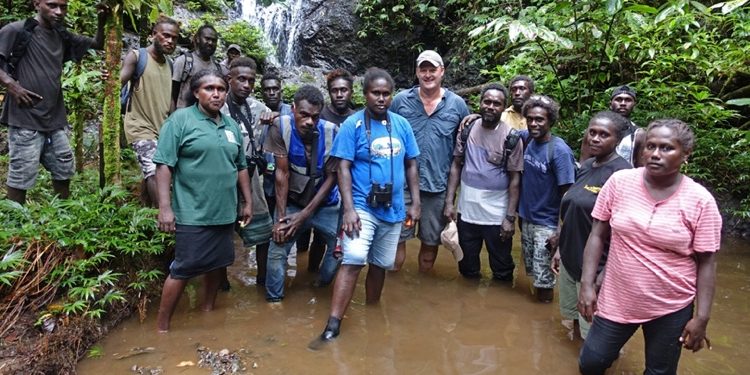THE Natural Resource Development Foundation (NRDF), in collaboration with the Ministry of Culture and Tourism (MCT), has successfully conducted a five-day tour guide training program for the rangers of the Babatana Rainforest Conservation Area in Choiseul.
The training was held in Sasamugga village from the 26 to 30 August.
A total of 15 rangers participated in the training.
According to a statement issued by Babatana Rainforest Conservation, the primary objective of the training was to enhance the basic knowledge, skills, and capabilities of the rangers to enable them to perform their duties more effectively.
Speaking at the opening of the training on Monday, Project Coordinator for the Babatana Rainforest Conservation Area, Cornelius Qaqara expressed gratitude to MCT for their unwavering support and facilitation of the training.
“This training is the first of its kind for the rangers of the Babatana Rainforest Conservation Area. It is crucial for the local rangers to gain new knowledge and acquire new skills,” Mr Qaqara said.
He said the Babatana Rainforest Conservation project in Central Choiseul has made significant strides, having legally registered four protected areas.
It is also the first protected area in Solomon Islands to be certified for carbon credit trading.
“This remarkable achievement has brought global attention to this remote region, leading to a surge in visitor.
“The Babatana Rainforest, with its spectacular landscapes, rivers, and wildlife, is an ideal destination for ecotourism activities,” he added.
The training was designed to introduce participants to the basics of tourism and accommodation, particularly since many of them had limited exposure to the tourism industry.
The program included a mix of classroom sessions, practical exercises and storytelling.
The final day of the training featured a full-day excursion in the protected area, where the rangers showcased the skills they had acquired by leading a tour.
Trainers Bjorn Svensson and Tobas Sandakabatu commended the participants for their extensive knowledge of the bush.
They highlighted that traditional skills, such as fire making, bush medicine, and foraging for food in the wild, are of great interest to visitors from Western countries and should be incorporated into future tours.
At the conclusion of the training, participants were awarded certificates.
Representing the participants, Linford Jajo Pitatamae from the Sirebe tribe, expressed his appreciation to NRDF for organizing the training and to MCT and stakeholders who supported the program.
“The training is immensely important to us as it provided us with relevant skills and knowledge in tour guide engagement,” Mr Pitatamae said.
The NRDF acknowledged its partners and funders for their invaluable support in making the training a success.
The tour guide training manual, developed specifically for Solomon Islands by the Wildlife Conservation Society (WCS) in 2021, played a key role in the training.
The program was funded by the New Zealand Ministry of Foreign Affairs and Trade (MFAT).
By ULUTAH GINA
Solomon Star, Gizo









